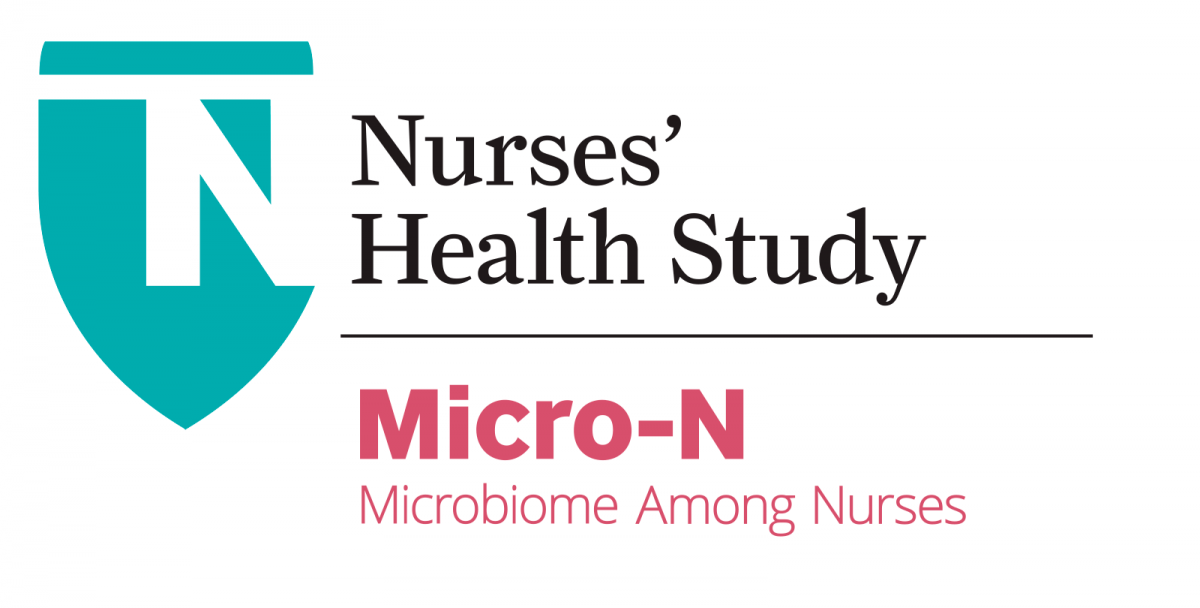 MICRObiome Among Nurses (MICRO-N) is a new study that is recruiting 25,000 nurses from Nurses’ Health Study II. Following are highlights about the study; if you are interested in learning more or in participating, please contact us at NHS2MicroN@bwh.harvard.edu.
MICRObiome Among Nurses (MICRO-N) is a new study that is recruiting 25,000 nurses from Nurses’ Health Study II. Following are highlights about the study; if you are interested in learning more or in participating, please contact us at NHS2MicroN@bwh.harvard.edu.
Study background
The MICRO-N Study will enable research on the connection between diet and lifestyle, microbiome composition, and the risk of developing chronic diseases such as cancer, diabetes, and heart disease.
Your microbiome consists of all the microorganisms living both inside and on your body. These include bacteria, archaea, viruses, and fungi. Interactions between these microorganisms and our bodies have been shown to play a much greater role than previously understood.
Technological advances in DNA sequencing have made it possible to understand the composition of these microorganisms on the genetic level.
The development of new methods, such as 16S rRNA gene sequencing, and, more recently, whole genome DNA-sequencing (WGS), has revolutionized this field, making it possible to study the entire bacterial WGS to assess the bacterial composition of the stool and tongue swab samples down to the species level.
Why join?
Since its start in 1989, the Nurses’ Health Study II has made many important discoveries about health and disease. Without your involvement, none of that would have been possible! By providing samples for the Micro-N study, you will help to contribute to the growing field of microbiome research.
There have already been several studies linking the microbiome to areas of health and wellness, such as obesity, mental health, and several forms of cancer. The findings from your samples might one day help to prevent or cure many types of disease!
Who can join?
If you are currently enrolled in the Nurses’ Health Study II, you are eligible to participate in the Micro-N study and provide samples for this study. To join, contact us at NHS2MicroN@bwh.harvard.edu.
What is required?
We ask that you provide us with a stool sample and a tongue swab, and answer a few questions about your sample collection. The collection itself is quick, easy, and hygienic. It has three steps:
1. Gut microbiome (stool sample)
- There is no need to change your diet or behavior in any way prior to collecting your specimen.
- The kit is small and compact, and can be stored in your bathroom to use at your convenience.
- Once you are prepared to collect your sample, the process will take only a few minutes (and is not particularly gross).
- The questions about the stool collection can be answered in less than 5 minutes.
2. Oral microbiome (tongue swab)
- The tongue swab should be completed on waking up (the day after your stool collection) so that you do not eat, drink, or chew gum prior to collecting your sample.
- The package is small and compact, and can be stored in or on a bedside table for easy access.
- The collection itself takes less than a minute.
- The questions about the tongue swab will only take a few minutes to answer.
3. Sample return
- Once you have collected both the stool and tongue swab samples and answered the questions, you will return the samples in the box they came in.
- The postage is prepaid, so you can drop it into any regular US mailbox.
- Please mail it back any weekday (to keep the samples from being in a mailbox for too long).
- If you collect on a weekend and need to wait until Monday to mail, do not worry. The samples are stable at room temperatures indoors.
Protecting your privacy
The security of your personal information is our highest priority, and we take a number of precautions to protect any information you give us. In addition, we do our utmost to ensure that any data that we obtain from you or your specimens remains protected and unidentifiable.
Read more about our confidentiality policy
Read more about the way we will store and use your specimens
Learn more about microbiome research
Biodiversity and Functional Genomics in the Human Microbiome
www.ncbi.nlm.nih.gov/pmc/articles/PMC3534939/ (not final publication)
Findings from the Gut—New Insights into the Human Microbiome
www.scientificamerican.com/article/findings-from-the-gut-new-insights-into-the-human-microbiome1/
Microbes, a Love Story
www.nytimes.com/2017/02/10/opinion/sunday/microbes-a-love-story.html
Microbiome sequencing offers hope for diagnostics
www.nature.com/news/microbiome-sequencing-offers-hope-for-diagnostics-1.10299
Tending the Body’s Microbial Garden
www.nytimes.com/2012/06/19/science/studies-of-human-microbiome-yield-new-insights.html

